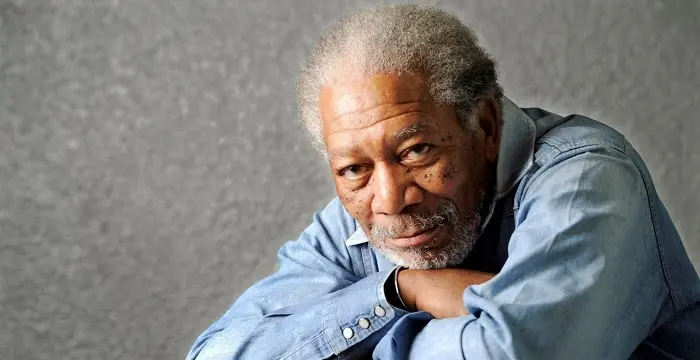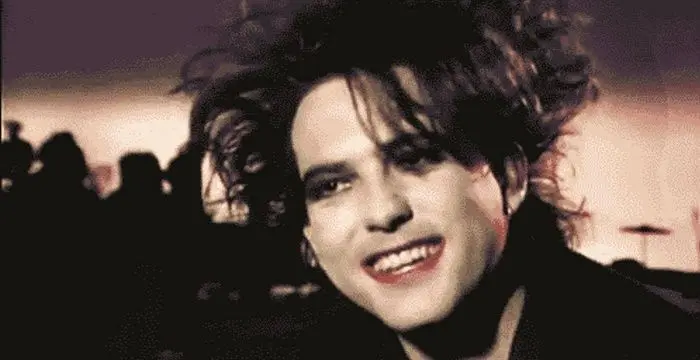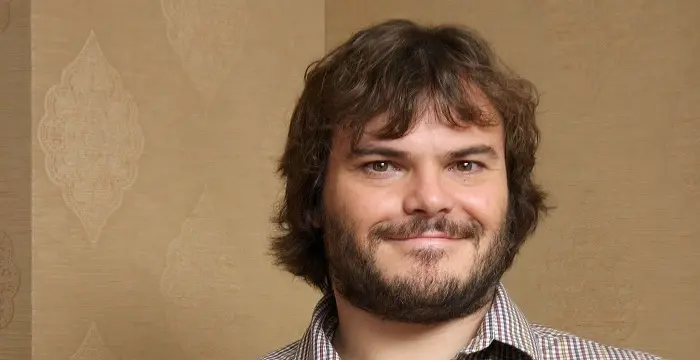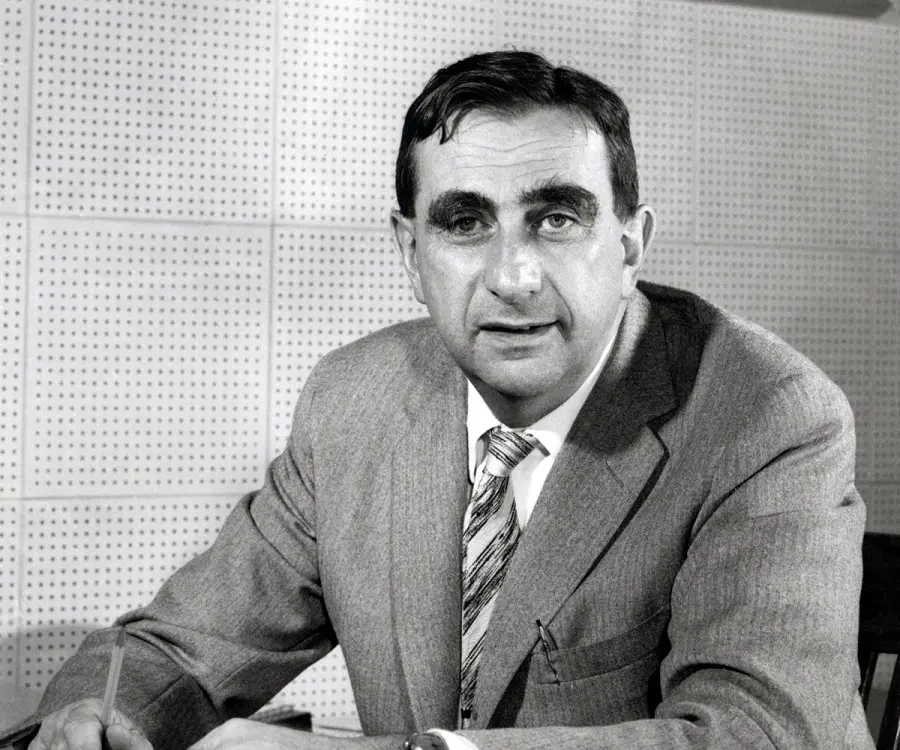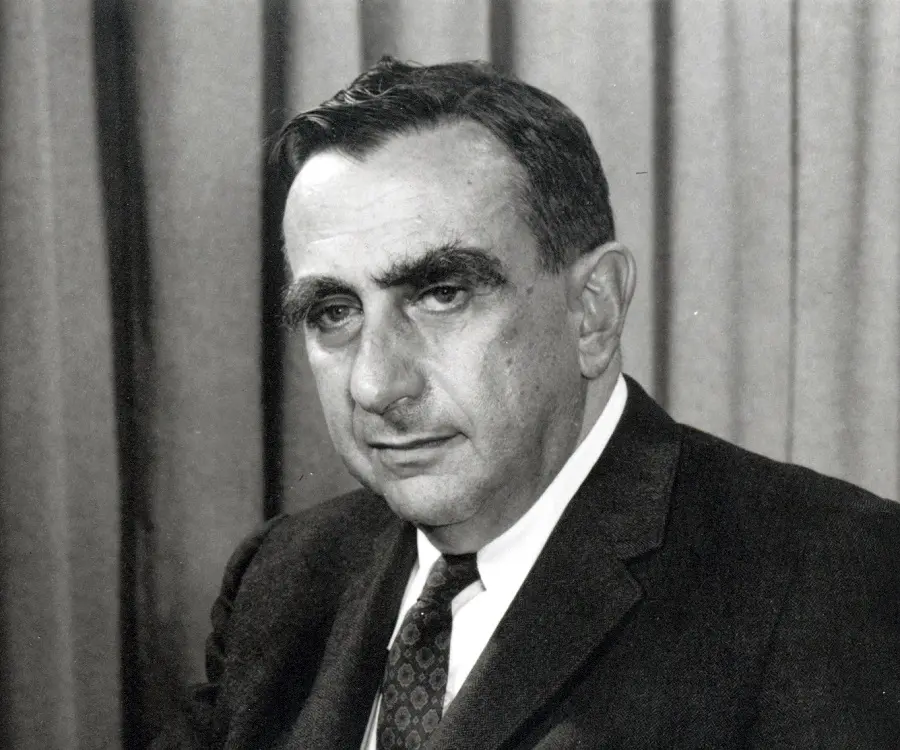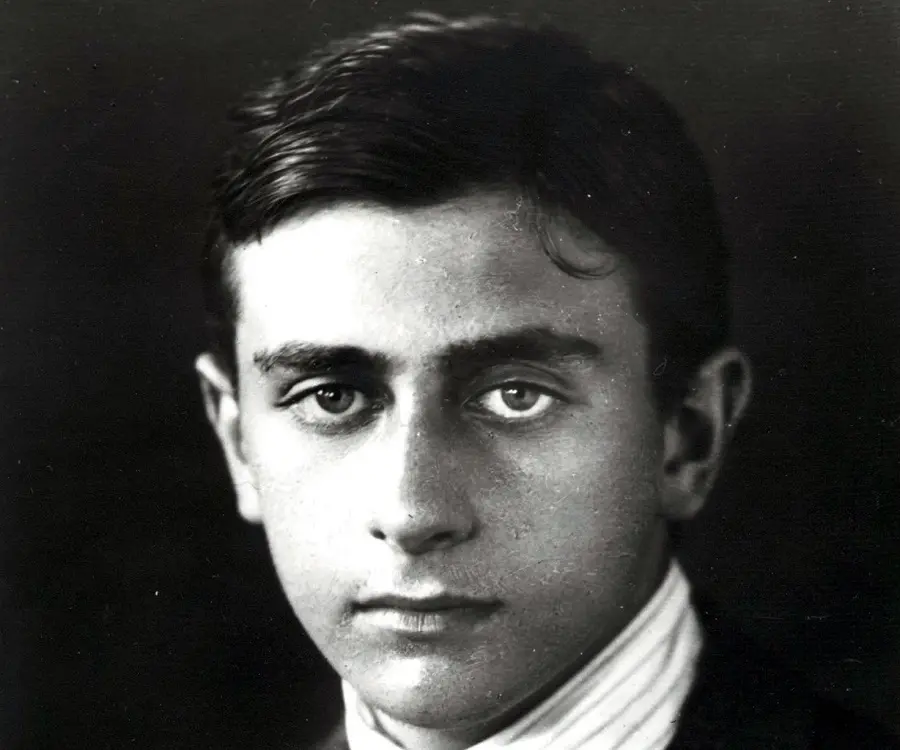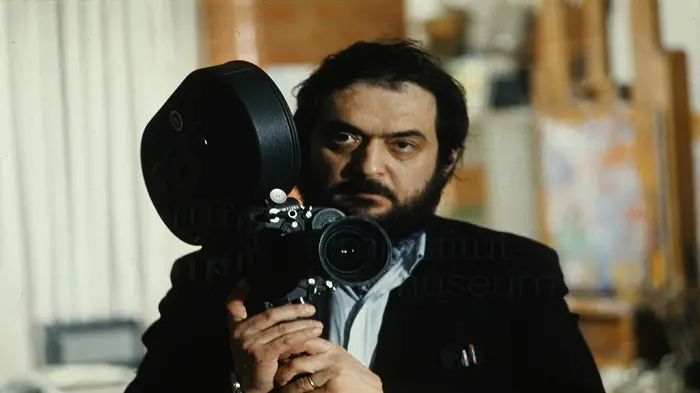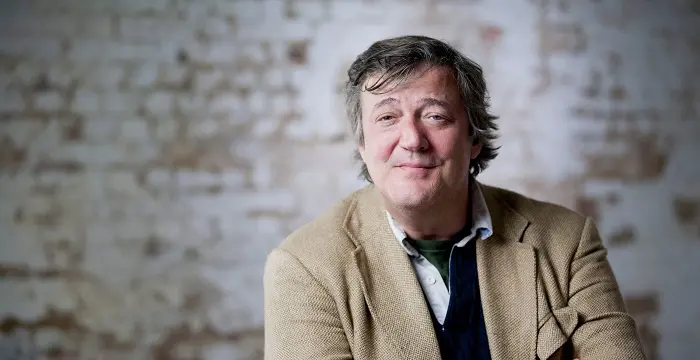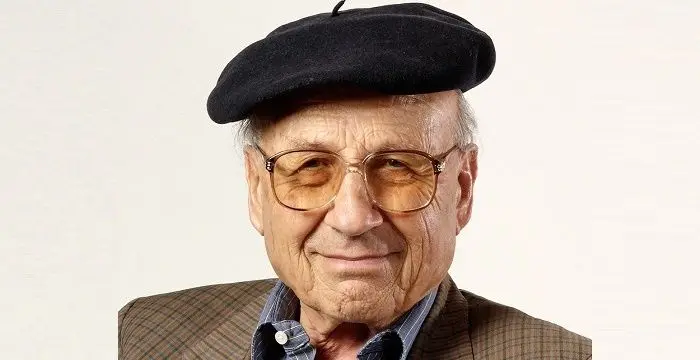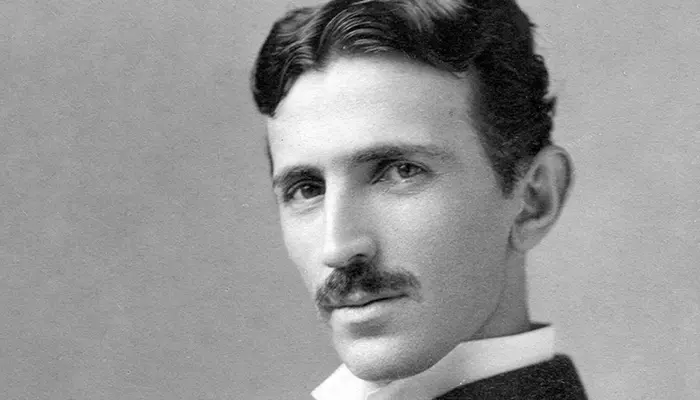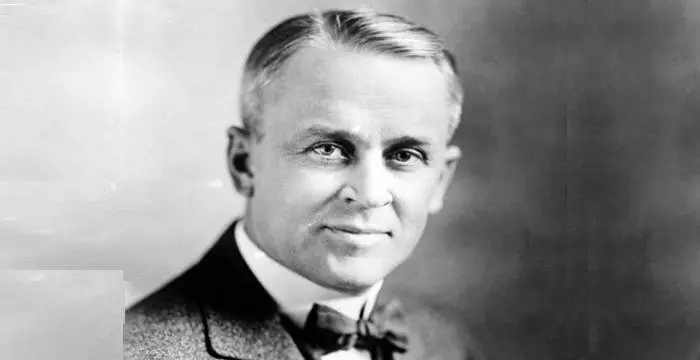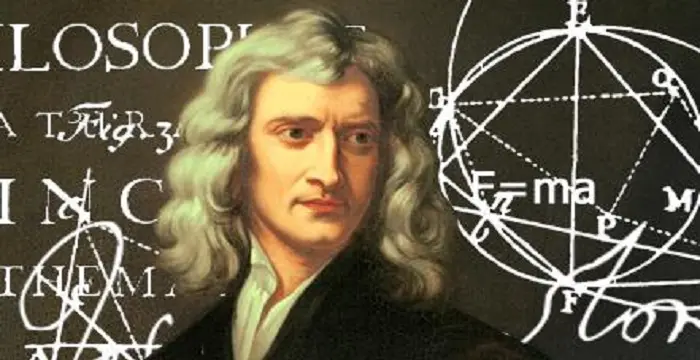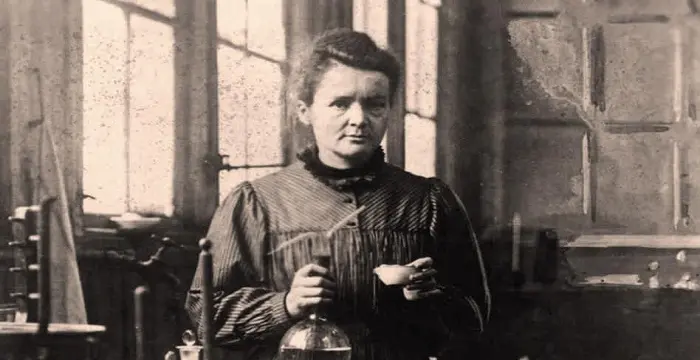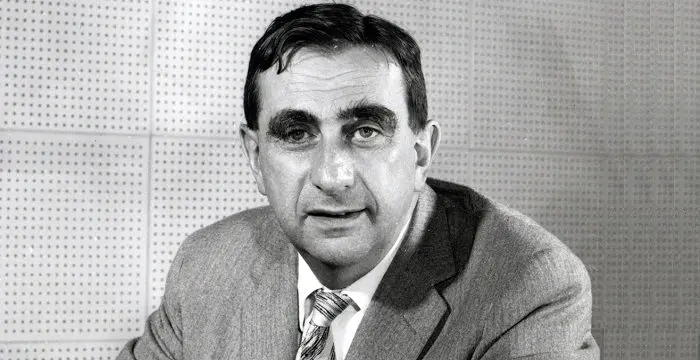
Edward Teller - Atheists, Birthday and Childhood
Edward Teller's Personal Details
Edward Teller was a theoretical physicist, who invented the hydrogen bomb
| Information | Detail |
|---|---|
| Birthday | January 15, 1908 |
| Died on | September 9, 2003 |
| Nationality | American |
| Famous | Atheists, Atheists/Agnostics, Scientists, Physicists |
| Spouses | Augusta Maria |
| Universities |
|
| Founder / Co-Founder |
|
| Discoveries / Inventions |
|
| Birth Place | Budapest |
| Religion | Jewish |
| Gender | Male |
| Father | Max Teller |
| Mother | Ilona |
| Sun Sign | Capricorn |
| Born in | Budapest |
| Died at Age | 95 |
// Famous Atheists
Morgan Freeman
Morgan Freeman is an Academy Award winning actor known for his work in movies like ‘Street Smart’, ‘Driving Miss Daisy’ and ‘Million Dollar Baby’. This biography provides detailed information about his childhood, life, achievements, works & timeline.
Robert Smith
Robert Smith is an English musician and the lead singer of the British rock band, ‘The Cure.’ This biography of Robert Smith gives detailed information on his profile, childhood, life and timeline.
Jack Black
Jack Black is a renowned American actor-producer and voice artist. Explore this biography to learn more about his profile, childhood, career and timeline
Edward Teller's photo
Who is Edward Teller?
A controversial figure and one of the most brilliant nuclear and molecular physicists, Edward Teller left an unparalleled legacy in the field of science. Hailed as the ‘the father of the hydrogen bomb’, Teller was one of the most imaginative and creative physicists. He holds a significant position in the development of nuclear energy and has made a major contribution in the fields of nuclear physics, molecular physics and spectroscopy. This weapons research pioneer, whose work on nuclear science was of crucial importance, played a key role in the American War effort. He advocated nuclear energy development, proposed the need for a strong nuclear arsenal and the need for a vigorous nuclear testing program in the country. He also helped to create nuclear reactor safety standards. He also investigated and proposed non-military uses of nuclear explosives and also advised Israel on nuclear matters. To learn more interesting facts about his childhood, personal life and professional achievements in the field of science, nuclear energy and nuclear technology, scroll down and continue to read this biography.
// Famous Scientists
Juliane Koepcke
Juliane Koepcke is a German-Peruvian biologist, who was the lone survivor among the 92 passengers and crew of the ill-fated LANSA Flight 508 that crashed in the Peruvian rainforest on 24 December 1971. Know more about her life in this biography.
Henry Cavendish
Henry Cavendish was a theoretical chemist and physicist, renowned for discovery of hydrogen and calculation of the mass of earth. To know more about his childhood, profile, timeline and career read on
Konstantin Tsiolkovsky
Konstantin Tsiolkovsky was a Russian rocket scientist and a pioneer of astronautics. This biography provides detailed information about his childhood, family, personal life, career, achievements, etc.
Childhood & Early Life
Edward Teller was born in Budapest, Hungary to Jewish parents, Max Teller, who was an attorney and Ilona Teller, a pianist.
In 1928, he graduated from the University of Karlsruhe with a BS degree in Chemical Engineering. He later obtained his Ph.D. in physics from the University of Leipzig.
In 1935, he moved to the United States of America and worked as physics Professor at the George Washington University, where he taught until 1941.
Career
In 1941, he became a citizen of the United States of America, before which he worked as a theoretical physicist. However, after he earned a U.S. citizenship, he became interested in the study of nuclear energy.
In 1942, he was invited to be a part of seminar on the Manhattan Project, a project that developed the first atomic bomb. During the session, he gave ideas about producing a fission weapon.
In 1943, he began to work at the Los Alamos Laboratory, New Mexico, where he was part of the Theoretical Physics department. Here, he began to give his ideas on fission weapons.
In 1946, he participated in a conference on hydrogen bomb design and the same year he quit his job at the Los Alamos Laboratory and began to work as a Professor at the University of Chicago.
In 1949, after the Soviet Union first detonated an atomic bomb, the then President Truman proposed the development program for the hydrogen bomb. The following year, he went to the Los Alamos Laboratory to work on the project.
In 1951, after his research on hydrogen bomb, along with mathematician Stanislaw Ulam, he published the report titled ‘Hydrodynamic Lenses and Radiation Mirrors’, which was the first workable design of the hydrogen bomb.
In 1952, he quit Los Alamos Laboratory, after he was denied the position of the head of the hydrogen project. He instead joined the University of California Radiation Laboratory.
On November 1, 1952 the ‘Ivy Mike’, the thermonuclear weapon created by him and Stanislaw Ulam was successfully tested at the test site, Enewetak. After the testing, he became known in the press as ‘the father of the hydrogen bomb’.
From 1958 to 1960 he was the Director of the Lawrence Livermore National Laboratory, which he co-founded along with American physicist Ernest Lawrence.
In 1963, he founded the Department of Applied Science, which was a part of the University of California. The university holds the Edward Teller endowed professorship.
In 1975, he retired as a Professor of Physics at the University of California, Berkeley, after which he became the Director Emeritus of the Livermore Laboratory.
In the 1980, he campaigned for The Strategic Defense Initiative, a program that was initiated by the then U.S President Ronald Reagan in order to protect the country from being attacked by nuclear ballistic missiles.
Major Works
He invented the ‘Teller-Ulam design’, which was a first workable design of a hydrogen bomb. This design was used to create the ‘Ivy Mike’, the thermonuclear weapon that was successfully tested in 1952.
Awards & Achievements
In 1962, he was the recipient of the Enrico Fermi Award that is awarded for pursuit in energy science and technology.
In 1991, he was awarded the Ig Nobel Prize Peace for his ‘lifelong efforts to change the meaning of peace as we know it’.
On July 23, 2003 he was awarded the Presidential Medal of Freedom, which was awarded to him by the then President George W. Bush.
Personal Life & Legacy
When he was a young student, he met with a car accident, which caused a severe injury on his right foot. The accident resulted in a prosthetic foot and he had a lifelong limp.
In February, 1934 he married Augusta Maria ‘Mici’ Harkanyi.
He died on September 9, 2003 at the age of 95, due to a stroke at his campus home in Stanford, California.
He was the inspiration behind the 1964 film ‘Dr. Strangelove or: How I Learned to Stop Worrying and Love the Bomb’.
Trivia
This acclaimed scientist used to play the piano late in the night, a practice that would frustrate and annoy his neighbours.
// Famous Atheists/Agnostics
Morgan Freeman
Morgan Freeman is an Academy Award winning actor known for his work in movies like ‘Street Smart’, ‘Driving Miss Daisy’ and ‘Million Dollar Baby’. This biography provides detailed information about his childhood, life, achievements, works & timeline.
Stanley Kubrick
Stanley Kubrick was a screenwriter and film director known for his movies like ‘The Clockwork Orange’ and ‘The Shining’. This biography of Stanley Kubrick provides detailed information about his childhood, life, achievements, works & timeline.
Stephen Fry
Stephen Fry is a comedian, actor, author, television and radio presenter. Read the biography and know all about his childhood, career, profile and timeline.
Edward Teller's awards
| Year | Name | Award |
|---|---|---|
Other | ||
| 1975 | Harvey Prize | |
| 1991 | Ig Nobel Prizes for Peace in recognition | |
| 1961 | Time Persons of the Year | |
| 0 | - National Medal of Science | |
| 0 | - Presidential Medal of Freedom | |
| 0 | ||
| 0 | 1986 - United States Military Academy's Sylvanus Thayer Award | |
| 0 | 1958 - Albert Einstein Award | |
| 0 | 1962 - Enrico Fermi Award | |
Edward Teller biography timelines
- // 15th Jan 1908Edward Teller was born in Budapest, Hungary to Jewish parents, Max Teller, who was an attorney and Ilona Teller, a pianist.
- // 1928In 1928, he graduated from the University of Karlsruhe with a BS degree in Chemical Engineering. He later obtained his Ph.D. in physics from the University of Leipzig.
- // 1934In February, 1934 he married Augusta Maria ‘Mici’ Harkanyi.
- // 1935In 1935, he moved to the United States of America and worked as physics Professor at the George Washington University, where he taught until 1941.
- // 1941In 1941, he became a citizen of the United States of America, before which he worked as a theoretical physicist. However, after he earned a U.S. citizenship, he became interested in the study of nuclear energy.
- // 1942In 1942, he was invited to be a part of seminar on the Manhattan Project, a project that developed the first atomic bomb. During the session, he gave ideas about producing a fission weapon.
- // 1943In 1943, he began to work at the Los Alamos Laboratory, New Mexico, where he was part of the Theoretical Physics department. Here, he began to give his ideas on fission weapons.
- // 1946In 1946, he participated in a conference on hydrogen bomb design and the same year he quit his job at the Los Alamos Laboratory and began to work as a Professor at the University of Chicago.
- // 1949In 1949, after the Soviet Union first detonated an atomic bomb, the then President Truman proposed the development program for the hydrogen bomb. The following year, he went to the Los Alamos Laboratory to work on the project.
- // 1951In 1951, after his research on hydrogen bomb, along with mathematician Stanislaw Ulam, he published the report titled ‘Hydrodynamic Lenses and Radiation Mirrors’, which was the first workable design of the hydrogen bomb.
- // 1952In 1952, he quit Los Alamos Laboratory, after he was denied the position of the head of the hydrogen project. He instead joined the University of California Radiation Laboratory.
- // 1952On November 1, 1952 the ‘Ivy Mike’, the thermonuclear weapon created by him and Stanislaw Ulam was successfully tested at the test site, Enewetak. After the testing, he became known in the press as ‘the father of the hydrogen bomb’.
- // 1958 To 1960From 1958 to 1960 he was the Director of the Lawrence Livermore National Laboratory, which he co-founded along with American physicist Ernest Lawrence.
- // 1962In 1962, he was the recipient of the Enrico Fermi Award that is awarded for pursuit in energy science and technology.
- // 1963In 1963, he founded the Department of Applied Science, which was a part of the University of California. The university holds the Edward Teller endowed professorship.
- // 1975In 1975, he retired as a Professor of Physics at the University of California, Berkeley, after which he became the Director Emeritus of the Livermore Laboratory.
- // 1980In the 1980, he campaigned for The Strategic Defense Initiative, a program that was initiated by the then U.S President Ronald Reagan in order to protect the country from being attacked by nuclear ballistic missiles.
- // 1991In 1991, he was awarded the Ig Nobel Prize Peace for his ‘lifelong efforts to change the meaning of peace as we know it’.
- // 23rd Jul 2003On July 23, 2003 he was awarded the Presidential Medal of Freedom, which was awarded to him by the then President George W. Bush.
- // 9th Sep 2003He died on September 9, 2003 at the age of 95, due to a stroke at his campus home in Stanford, California.
// Famous Physicists
Henry Cavendish
Henry Cavendish was a theoretical chemist and physicist, renowned for discovery of hydrogen and calculation of the mass of earth. To know more about his childhood, profile, timeline and career read on
Walter Kohn
Nobel Laureate Walter Kohn was an Austrian-born American theoretical chemist and physicist. Check out this biography to know about his childhood, life, achievements, works & timeline.
Nikola Tesla
Nikola Tesla was a Serbian-American inventor, best known for his development of alternating current electrical systems. This biography of Nikola Tesla provides detailed information about his childhood, life, achievements, works & timeline.
Robert Andrews Millikan
Robert Andrews Millikan was an eminent American experimental physicist who won the Nobel Prize for Physics in 1923 for his work on photoelectric effect. Check out this biography to know about his childhood, life, achievements, works & timeline.
Isaac Newton
Isaac Newton was an English scientist and mathematician, who discovered gravitation and Newtonian Mechanics. Read this biography to find more on his life.
Marie Curie
Marie Curie was a Physicist and Chemist, who was world renowned for her work on radioactivity. She also was the winner of two Nobel Prize. Read this biography to get info about her life and profile.
Edward Teller's FAQ
What is Edward Teller birthday?
Edward Teller was born at 1908-01-15
When was Edward Teller died?
Edward Teller was died at 2003-09-09
Where was Edward Teller died?
Edward Teller was died in Stanford
Which age was Edward Teller died?
Edward Teller was died at age 95
Where is Edward Teller's birth place?
Edward Teller was born in Budapest
What is Edward Teller nationalities?
Edward Teller's nationalities is American
Who is Edward Teller spouses?
Edward Teller's spouses is Augusta Maria
What was Edward Teller universities?
Edward Teller studied at University of Karlsruhe, University of Leipzig, Karlsruhe Institute of Technology
Which company or organization was founded by Edward Teller?
Edward Teller was the founder/co-founder of Lawrence Livermore National Laboratory (LLNL)
What is Edward Teller's inventions/discoveries?
Thermonuclear Weapon was invented (or discovered) by Edward Teller
What is Edward Teller's religion?
Edward Teller's religion is Jewish
Who is Edward Teller's father?
Edward Teller's father is Max Teller
Who is Edward Teller's mother?
Edward Teller's mother is Ilona
What is Edward Teller's sun sign?
Edward Teller is Capricorn
